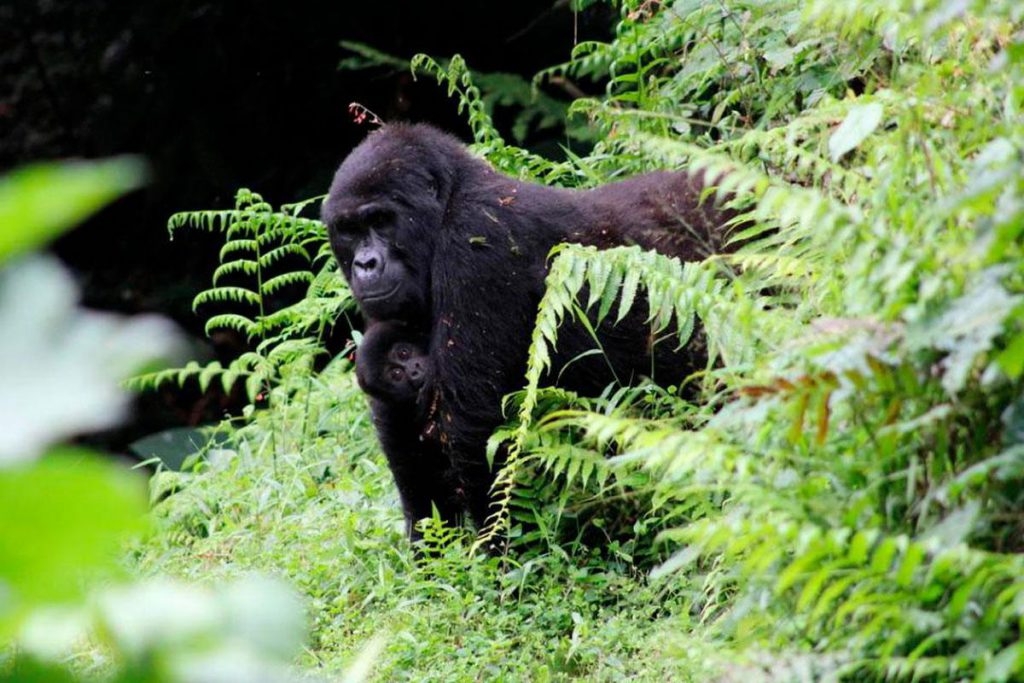Content
- 1 How to Get to Takamanda National Park
- 2 History and Heritage
- 3 Climate and Geography
- 4 Flora and Fauna of the Park
- 5 Activities in Takamanda National Park
- 6 Park Rules and Regulations
- 7 Accommodation and Services in and around the Park
- 8 Local Community and its Relationship with the Park
- 9 Guide to Planning Your Visit to Takamanda National Park
- 10 Photo Gallery
Located in the westernmost part of Cameroon, the Takamanda National Park is a haven of biodiversity, culture, and natural beauty. Each year, this impressive place draws the attention of adventurous travelers in search of an authentic encounter with wild nature.
How to Get to Takamanda National Park
Takamanda is situated in the Southwest Province of Cameroon, on the border with Nigeria. The park can be reached by car from the nearest city, Mamfe, which usually takes about three hours on mainly unpaved roads.
History and Heritage
Creation and Evolution of the Park
Established in 2008, Takamanda joined the list of Cameroon’s national parks to protect a critically endangered population of gorillas that span across borders. Since then, the park has played a vital role in the conservation of these magnificent creatures and the preservation of the local ecosystem.
Cultural and Archaeological Heritage
In addition to its rich biodiversity, Takamanda is also home to several local communities that have lived in harmony with nature for generations. Their traditions and customs have contributed significantly to the conservation and sustainable management of the park.
Climate and Geography
Specific Geographic Zones
Takamanda National Park encompasses mountainous terrain, forests, and rivers. It is primarily composed of montane rainforest, with elevations ranging from 300 to 1,900 meters above sea level.
Flora and Fauna of the Park
Endemic and Notable Species
Takamanda is home to a variety of wildlife, including primates such as western lowland gorillas and chimpanzees. Additionally, the park is the habitat of numerous bird and butterfly species, some of which are endemic to this area.
Conservation and Threats
The park faces significant challenges in terms of conservation, including poaching and deforestation. However, thanks to the joint efforts of park authorities and local communities, significant measures are being taken to mitigate these threats.
Activities in Takamanda National Park
Hiking and Exploration
The park offers a wide variety of trekking trails that vary in difficulty and duration. These trails provide the opportunity to explore the beautiful flora and fauna of the park and enjoy stunning panoramic views.
Wildlife Watching
Wildlife watching is one of the most popular activities in Takamanda. The opportunity to spot western lowland gorillas in their natural habitat is truly a unique and unforgettable experience.
Cultural Experiences
The park also offers the opportunity to learn more about local cultures through visits to nearby villages. Visitors can learn about the local traditions and customs and how these communities have lived in harmony with nature for generations.
Park Rules and Regulations
Visitor Guidelines
To ensure the conservation of the park and respect for wildlife, visitors are expected to follow a series of rules, which include maintaining a safe distance from animals, not feeding them, staying on designated trails, and not littering.
Fishing and Hunting Licenses
Hunting and fishing are strictly prohibited in the park, as it is a protected area dedicated to wildlife conservation. Any violation of these regulations may result in severe penalties.
Accommodation and Services in and around the Park
Facilities Within the Park
Although the park does not have accommodation directly inside, it does offer basic facilities for visitors, such as restrooms and picnic areas.
Accommodation and Services Near the Park
There are several accommodations available in nearby towns, ranging from simple and affordable lodgings to more luxurious options. Some of these places also offer organized tours to the park, which can be a convenient option for visitors.
Local Community and its Relationship with the Park
Involvement of the Local Community in Conservation
Local communities play an essential role in the conservation of Takamanda. Through a series of community initiatives, efforts are being made to ensure that park conservation is beneficial for both wildlife and the people living in the area.
Economic Impact of the Park on the Community
Tourism in Takamanda has a positive impact on the local economy, providing employment to nearby communities and promoting sustainable development. Tourism-related activities, such as organizing tours and accommodations, are an important source of income for many families in the area.
Guide to Planning Your Visit to Takamanda National Park
What to Bring
It is essential to bring appropriate clothing for walking in the forest, including sturdy boots, rain gear, and lightweight clothing for the heat. Do not forget your binoculars for wildlife observation, as well as enough water and snacks for the day. It is also recommended to bring insect repellent and sunscreen.
Best Time to Visit
Ideal Season for Visits
Although Takamanda can be visited throughout the year, the best time to do so is during the dry season, which goes from November to February, when the roads are in better condition and wildlife observation is more favorable.
Recommended Itineraries
For first-time visitors, it is recommended to dedicate at least two days to the park visit. A typical itinerary could include one day of trekking in the forest for wildlife observation, followed by a day of visiting local communities to learn about their culture and relationship with the park.
